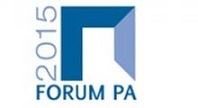Le persone che hanno partecipato

Roberto Lancellotti
Based in Milan, Roberto is the Regional Leader for our Business Technology Office in Western Europe.
Since joining the firm in 1994, Roberto has served numerous clients across Western Europe, Central and Eastern Europe, and the Middle East; covering a broad range of industry sectors, including telecommunications, consumer goods, the public sector, and primarily, financial institutions.
Roberto’s core work focus is on architecting and executing large-scale transformations of domestic and cross-border operating models and on leveraging information and digital technologies to maximize business impact.
Recent examples of his work include:
- Leading a full restructuring (legal set-up, distribution channels, product range, operating model, IT platforms) for a leading insurance carrier
- Creating a large-scale IT infrastructure outsourcing program for a multinational banking group
- Redesigning a cross-border operating model for a leading financial company
- Advising on a digital growth strategy for a major telecom operator
- Implementing a procurement optimization program for a telecom operator
- Designing a spending review program for a national government
- Designing a system to drive target setting and monitoring process for central and local expenditures for a national government
- Leading Studio ergo Lavoro, a pro-bono initiative launched in Italy by McKinsey to facilitate the transition of youths from education to employment.
Roberto holds a degree with honors in computer science from the University of Milan and an MBA with honors from SDA Bocconi University. Before joining McKinsey, he worked for an information technology consultancy firm.
